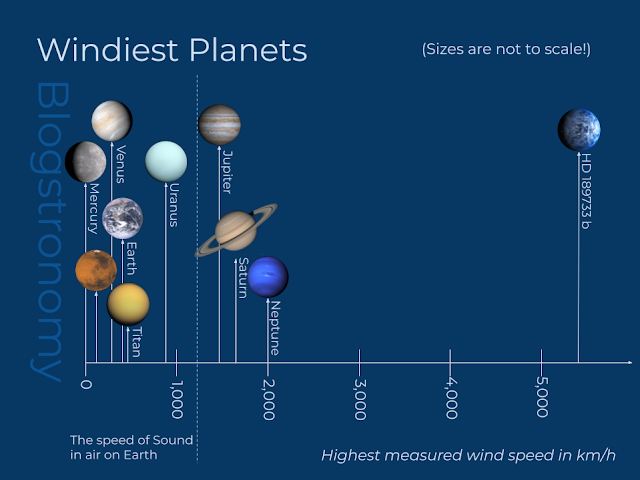How Do We Know What Planets Are Made From?
How do we know what the various planets are made from and what gases exist on their surfaces? - Question posed by Ken.
Though the planets in our solar system are much, much closer than the stars, it's still pretty difficult to get to them. Working out what's on them has to be a bit more involved than wandering over, dipping your finger in, giving it a lick, and saying "mmm, that's molecular hydrogen and helium, that is."
The Stuff of Atmosphere
Working from the outside in, a planet's atmosphere can be determined in much the same way as we figure out the composition of distant stars: using a technique called 'spectroscopy' which I detailed in How Do We Know What Stars Are Made Of?
I believe that Venus, Mars and Jupiter's atmospheres have been directly sampled by probes, as has that of Saturn's moon, Titan. These probes use a type of spectrometry called mass spectrometry to determine the composition of the samples they have taken.
On the Surface
The hard surface of a planet can, to a lesser extent, also be determined via spectroscopy. Lesser because of the atmosphere getting in the way and absorbing, reflecting and otherwise interfering with the light that we're trying to use to find out about the surface. When we can't see the surface properly, we need to use other ideas...
Deeper and Down
To find out what planets are made of beneath what we can see we need to make educated guesses based on what we already know regarding things like the strength of magnetic fields, mass and density, oblateness and current theories about how things were formed.
For example, a large planet with a mass that's low for its size might well indicate that it is largely gaseous; a planet with a strong magnetic field could indicate a large amount of metallic material, such as iron, in its core; a very oblate gas planet implies that its density is not evenly distributed, which may suggest a large solid core. Knowing that all of the planets in our solar system formed from the same basic pool of resources helps scientists to zero-in on which elements might be present and contributing to the effects that we can measure.
What we find out about planets in our own solar system helps us to make intelligent assumptions about extrasolar planets as they are discovered. Of course, we may - and already have - find out things that test our understanding of how our own system formed!



Comments
Post a Comment